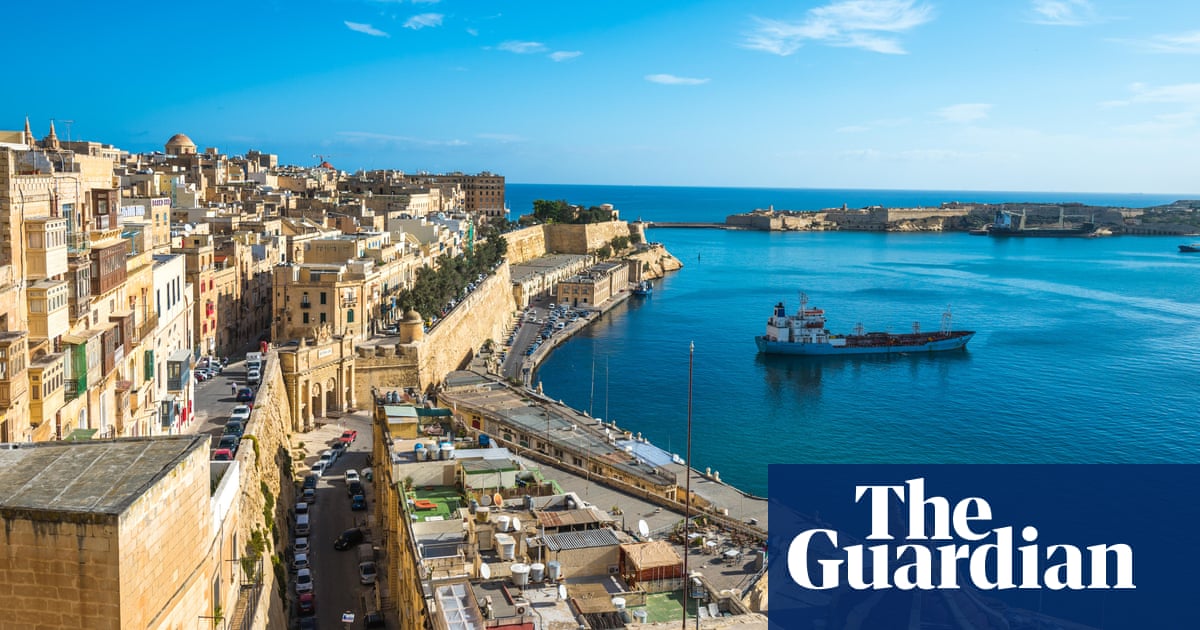The European court of justice has ruled that Malta’s “golden passport” scheme is illegal, meaning its cash-for-citizenship programme must be scrapped.
In a long-awaited ruling on Tuesday, the EU’s top court concluded that Malta’s investor citizenship scheme was contrary to EU law. Judges said the scheme represented a “commercialisation of the grant of the nationality of a member state” and by extension EU citizenship, which was at odds with European law.Maltahad jeopardised the mutual trust between EU member states necessary to create an area without internal borders, the court argued.
The judges examined a 2020 scheme that allowed people who had given up to €750,000 to Malta and – in theory – spent 12 months in the country to gain citizenship. With a Maltese passport, the person gained EU citizenship and the freedom to live and work anywhere in the union.
The scheme, which had its origins in a 2013 law, has long been criticised by transparency campaigners, who said it opened the door to money laundering, corruption and security risks. In 2021 a Guardian investigation found thatmultimillionaires with minimal genuine links to Malta were being granted citizenship, sometimes spending only three weeks in the country. A cache of emails from the Daphne Caruana Galizia Foundation shared with international media revealed that many people claiming to be residents left their Maltese rental properties empty.
The European Commission launched legal proceedings against Malta and Cyprus in October 2020 for selling “EU citizenship”. Cyprusannounced it was closing its schemeshortly before the case was launched, but Malta’s government was defiant. In submissions to the court it argued it had exclusive competence to grant nationality, so was entitled to run the scheme.
Responding to the ruling, Malta’s government said it was studying the legal implications, “so that the regulatory framework on citizenship can then be brought in line with the principles outlined in the judgment”.
But it also touted the benefits of the scheme, saying it had generated more than €1.4bn in revenues for the government since 2015.
In a Facebook post, the former prime minister Joseph Muscat claimed the verdict was a political judgment. Muscat was the prime minister when the golden passport scheme was introduced. He resigned in 2020 in response to widespread anger over hisperceived attempts – which he denies – to protect alliesfrom an investigation into the 2017 murder of the journalistDaphne Caruana Galizia.
Golden passport schemes sprang up across Europe as cash-strapped governments looked to raise money after the financial crisis. The British government announced in February 2022 that it wasscrapping the UK’s “tier 1 investor visa”amid corruption and national security concerns and worsening relations with Russia.
In contrast, Donald Trump announced in Februaryhe planned to launch a “gold card” visa,a $5m residency permit for wealthy foreigners.
Sign up toThis is Europe
The most pressing stories and debates for Europeans – from identity to economics to the environment
after newsletter promotion
Matthew Caruana Galizia, the director of the foundation that works to secure his mother’s public interest legacy, described the court judgment as “a win for the people of Malta and for all EU residents who have been unfairly exposed to the whims of money launderers and corrupt criminals buying their way into the EU”. He urged the government “to abolish its citizenship-by-investment programme without delay”.
A European Commission spokesperson welcomed the court decision and called on Malta to implement the judgment: “European citizenship is not for sale,” the spokesperson said. “Investor citizenship schemes breach EU law and as such should be abolished by all member states.”
